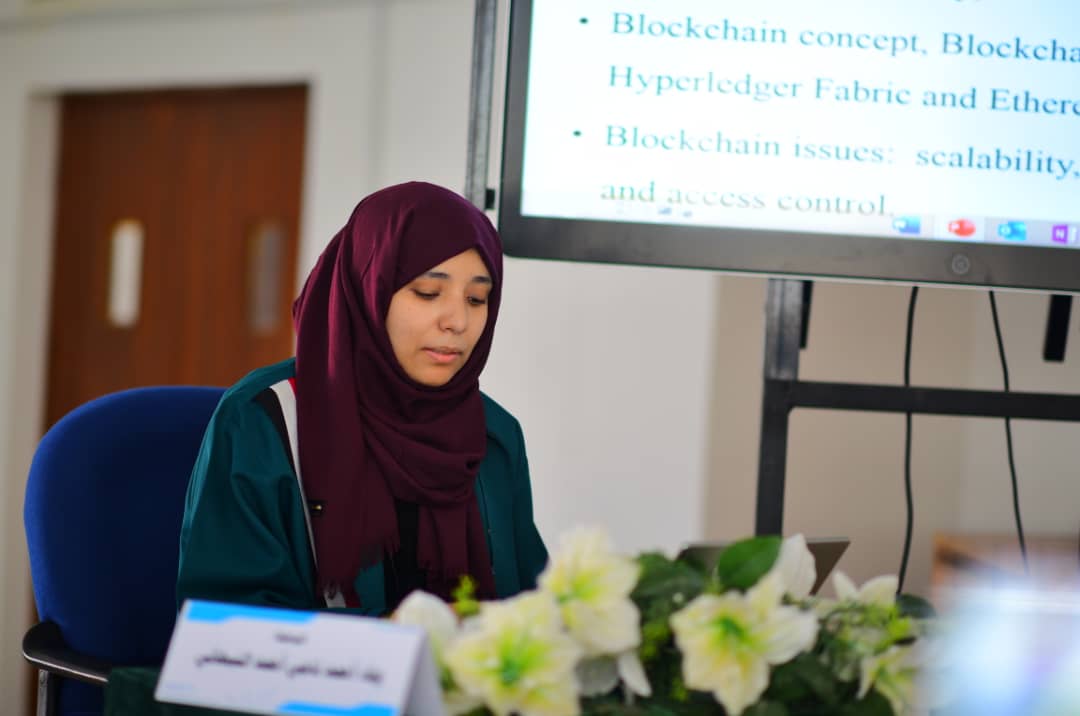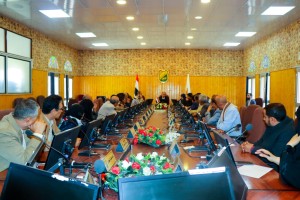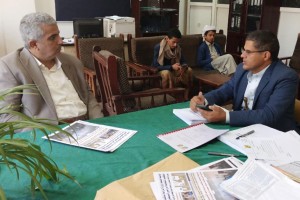Public PhD Viva-Voce Examination of Ms. Wafa Ahmed Naji Al-Nabhani
- Categories Letters and Promotions - Graduate Studies, news, Regulations - Postgraduate Studies
- Date May 4, 2025

The Public Viva-Voce Examination for the PhD Dissertation hereto entitled, An Intelligent and Adaptive Blockchain-Based Model for Internet of Things Applications in Healthcare, submitted by Ms. Wafa Ahmed Naji Al-Nabhani, to Department of Information Technology, Faculty of Computer and Information Technology – Sana’a University, was held on Wednesday, Dhu al-Qadah 2, 1446 Hijri, corresponding to April 30, 2025. The Viva-Voce Committee, which was formed based on a resolution issued by the Post-Graduate Studies and Scientific Research Council, consisted of the following members:
- Ammar Thabet Zuhari (Main superior and chairperson),
- Adnan Yahya Al-Mutawakel (Internal Examiner), and
- Prof. Farouq Abdo Al-Fuhaidi (External Examiner)
This dissertation aimed to develop three proposed models: OABAC-HF, an enhanced version with higher performance (OABAC-HF-B), and OABAC-HF-BMT, which supports multithreading to improve response speed. This was achieved by addressing limitations identified in previous studies and exploring the impact of integrating multithreading with a batching algorithm within an access control system, simulating real-world conditions in healthcare applications.
The dissertation reached several key findings, including:
- A 99% improvement in response time compared to previous studies.
- A 95% improvement in execution time compared to prior work.
- A doubling of the number of processes that can be handled compared to previous research.
The dissertation suggests several recommendations, most notably:
- Expanding the models to operate across multiple blockchain platforms such as Ethereum, Corda, and Binance Smart Chain.
- Supporting cross-chain communication protocols for seamless data exchange in heterogeneous environments.
- Implementing the models in real-world healthcare settings to evaluate practical performance and compatibility with existing health systems.
- Investigating quantum-resistant security by developing quantum-resistant encryption algorithms.
- Employing the model in other sectors such as finance, supply chains, and smart cities.
- Integrating federated learning with blockchain to achieve secure health analytics while preserving patient data privacy.
The defense was attended by a number of academics, researchers, and interested individuals, in addition to the candidate’s colleagues and family members.
The PhD dissertation was examined and recommended by the Viva-Voce Committee for acceptance and approval. The Candidate was recommended to be awarded the degree of PhD in Information Technology.
Discover more from Sana'a University
Subscribe to get the latest posts sent to your email.






